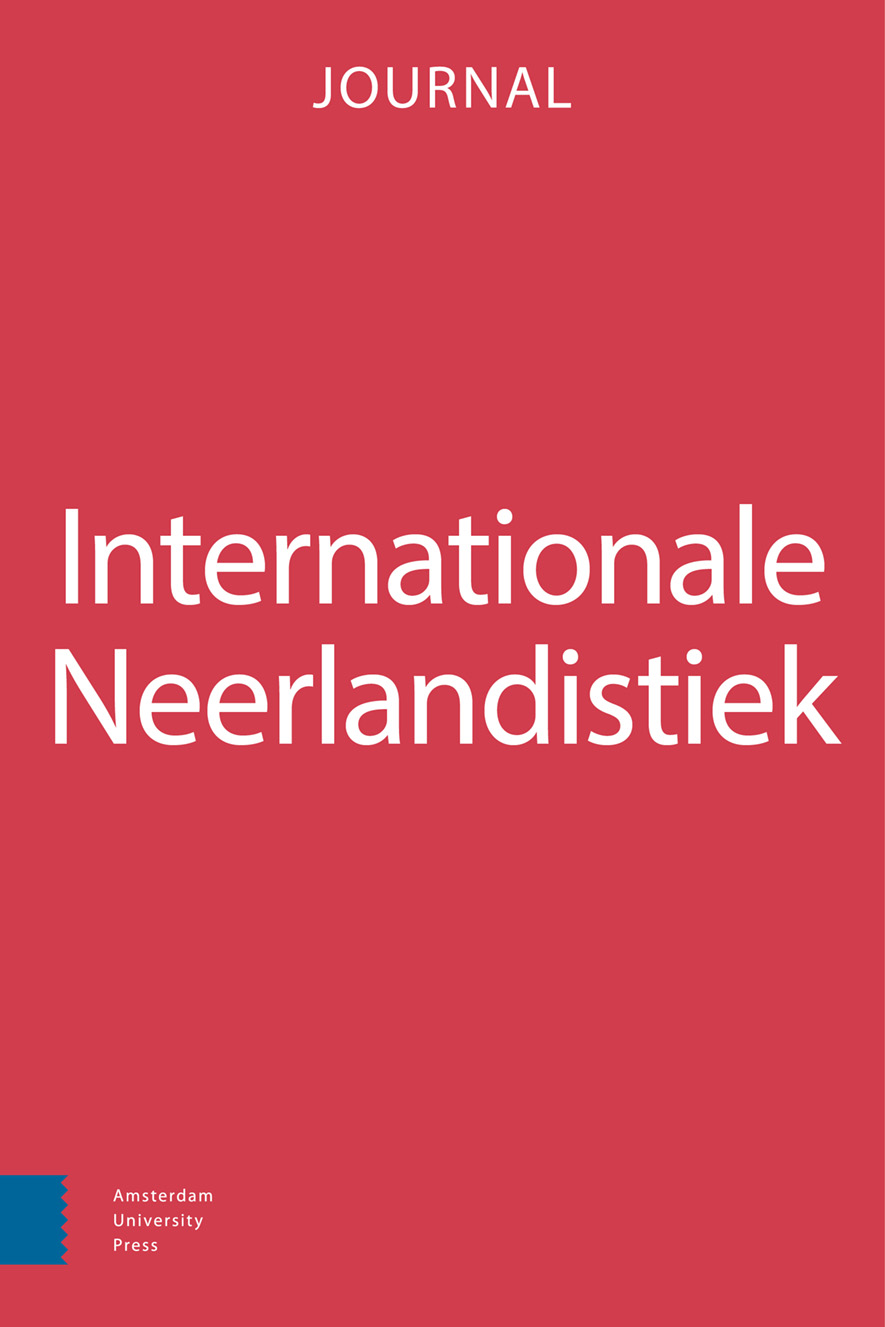-
OAEn nu opgehoepeld!
Over indeling en kenmerken van imperativische participia
- Amsterdam University Press
- Source: Internationale Neerlandistiek, Volume 61, Issue 1, May 2023, p. 36 - 58
-
- 01 May 2023
Abstract
Besides the standard imperative mood (as in Loop! ‘Walk!’), Dutch has a few alternative imperative constructions. This article is about one of those forms, namely the imperative participle. This involves forms such as Opgehoepeld! (‘Go away!’), Ingerukt! (‘March off!’), Opgelet (‘Take care!’) and Niet getreurd (‘Don’t be sad!’). A question that arises is whether forms of the type niet getreurd should be left out of consideration in the way Postma (2013) does. I make a reasonable case for including the type niet getreurd as a member of the construction under consideration. The study is based on attestations from the OpenSoNaR and CHN corpora and an overview of some previous analyses and thus addresses the question which features imperative participles have in common and which types can be regarded as variants of one imperative participial construction.


